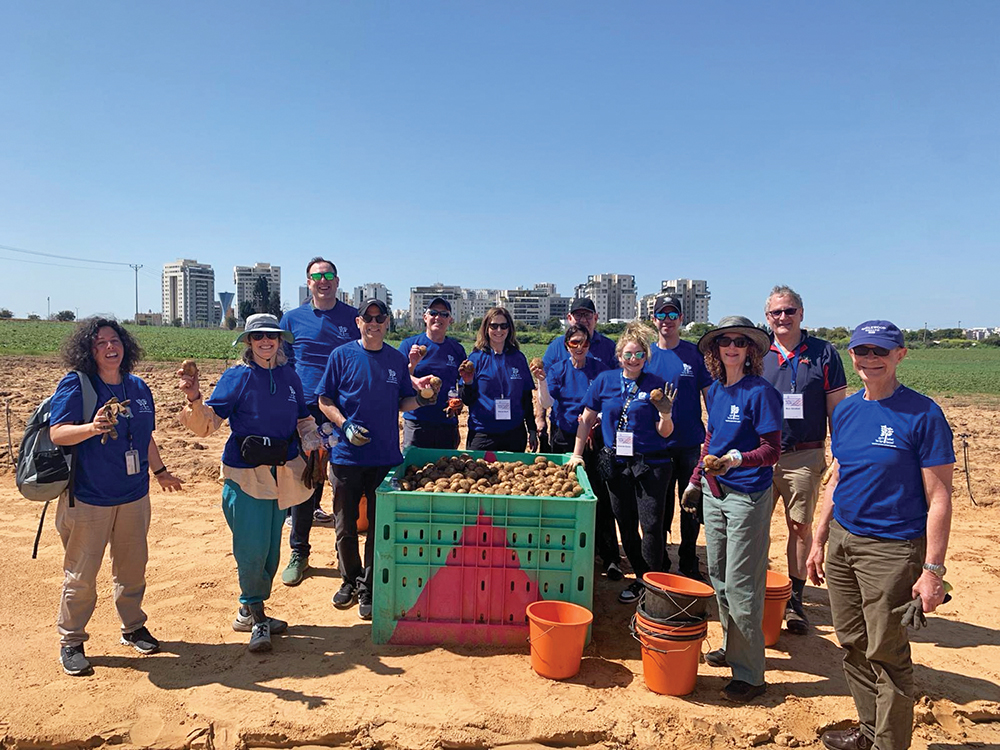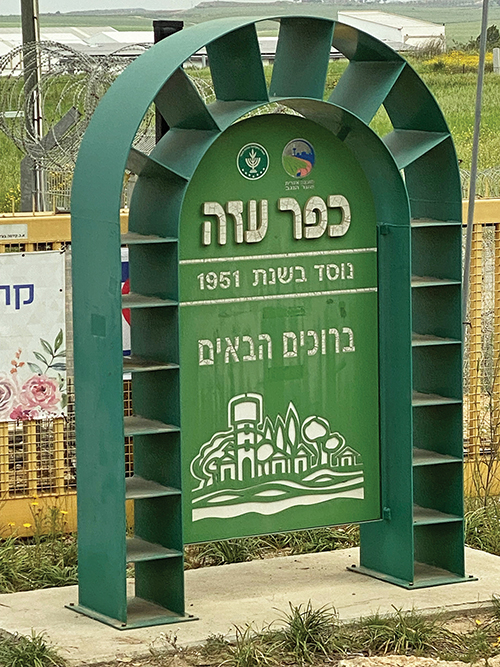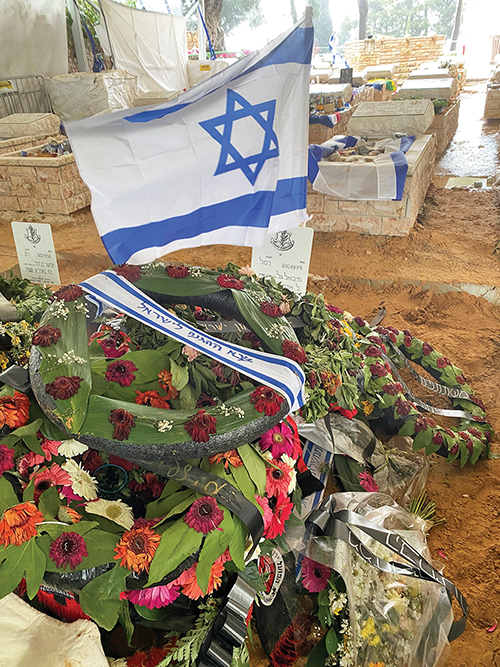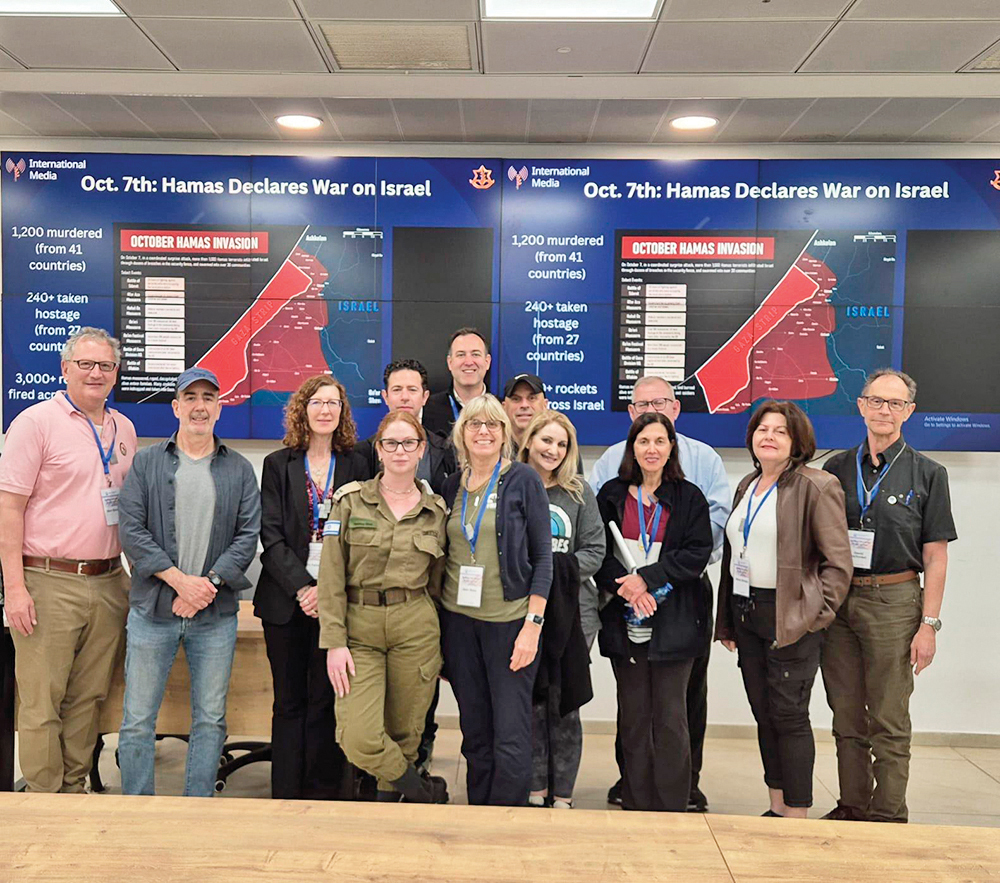
In a display of solidarity and support, a group of physicians recently embarked on a transformative mission to Israel. This mission, organized by Jewish Federation of Northern New Jersey, stands as a testament to the power of our community and the importance of bearing witness to the trials and triumphs of Israel.
One of the most striking revelations from our visit was the morale boost it brought to the Israeli citizens we met. It became evident how deeply appreciated and needed our presence was, underscoring the significance of this solidarity mission in fostering resilience and hope. Every individual we spoke to expressed their gratitude and appreciation for our visit.

The opportunity to bear witness to the trauma and tragedy endured by the Israeli people was truly transformative and impactful. As physicians, we are no strangers to human suffering, yet standing amid the resilient spirit of the Israeli people, we found a renewed sense of purpose and empathy. Our hearts were moved, our perspectives broadened and our resolve strengthened.
Central to the success of this mission was the meticulous planning by the Jewish Federation of Northern New Jersey. Every aspect of the trip, including access to top-notch speakers and leaders of major medical institutions, was orchestrated with precision and care. We extend our heartfelt gratitude to Federation and their team for creating this meaningful experience.
Throughout our time in Israel, we were privileged to witness the resilience and innovation of the Israeli health care system and society as a whole. From pioneering medical advancements to grassroots community-based initiatives, Israel exemplifies the power of perseverance and ingenuity in the face of adversity. For example, we met with Dr. Eilat Shinar, the medical director of Magen David Adom’s blood bank. She has developed new technology to allow medics to administer blood transfusions at the time of injury, in the field, rather than waiting for transport to a hospital. This innovation has saved the lives of many Israeli soldiers. We participated in harvesting of fruits and vegetables; Israelis have organized in support of the farmers who lack the workforce to harvest the ripe fruit and vegetables.

Our interactions with the health care community provided a specific ray of hope to us. In the medical community, coexistence between Jews, Muslims, Christians and Druze is the norm. At all six of the institutions we visited, the directors, doctors and nurses represented every part of Israeli society. They all worked together to care for patients of every religious background, without the bias that is seen elsewhere in the region. If only this can be the start, a nucleus of regional coexistence! If only this view of Israel could be shared with the Western media!
Here are some other highlights from our daily blog:
On the second day our group embarked on a poignant journey to a kibbutz and a moshav along the Gaza envelope. Guided by local residents, we heard firsthand accounts regarding the harrowing tales of loss, terror and survival on Oct. 7. As we walked amid the ruins of once vibrant beautiful communities, the stoic facial expressions of our guides occasionally gave way to tears and simmering anger, underscoring their profound emotional trauma.
Our visit to Soroka Hospital, located just 20 kilometers from Gaza, offered a sobering glimpse into the harrowing days following the Oct. 7 attack. The hospital’s dedicated staff treated a staggering 3,000 casualties—83 came in one hour alone. One particularly moving story was that of a young pediatric ICU specialist who cared for the youngest victims of the attack on Oct. 7. Hours later he was called up into his reserve unit and was killed that very same day.
Our visit to Shaare Zedek Medical Center in Jerusalem revealed the commitment of medical professionals as they prepare for the ever-looming possibility of additional conflict. They have fully functioning underground facilities, including an ICU, operating rooms and a NICU. In just a few weeks following the attack on Oct. 7, the hospital built an additional 70 ICU beds deep underground.
We went to Har Herzl to pay our respects to the recently fallen soldiers.This was a particularly sad day knowing that much of the empty space would probably be filled up sooner than later.

Mental health has become a serious issue in Israel and the IDF now has a mandatory two-day retreat for reservists who are about to return home. The retreat helps with the trauma they’ve experienced and the transition to coming home.
We went to Nahariya, Federation’s sister city and visited the Galilee Medical Center. This is the first hospital in northern Israel to build underground medical facilities including 400 underground beds, an ICU, operating rooms and MICU services. They are constantly preparing, planning and strategizing for an attack. Everyone we spoke to was convinced that war in the north was inevitable. We volunteered at Machsan Chesed, a food donation service that delivers food. It felt good packing bags of food that were delivered the next day.
This trip was emotionally exhausting. We experienced the unending emotional battle between glimmers of hope amid devastation and uncertainty. But we also realized that without hope, there is only despair. With despair, progress can never occur.
When we left Israel, our hearts were heavy with the weight of what we’d witnessed but we had a renewed sense of purpose. For in the face of unimaginable challenges, it is our shared humanity and faith that will ultimately prevail. We returned to the states determined to fight the misinformation and misconceptions which are so alarming throughout our country.
Am Yisrael Chai — the people of Israel live on!












